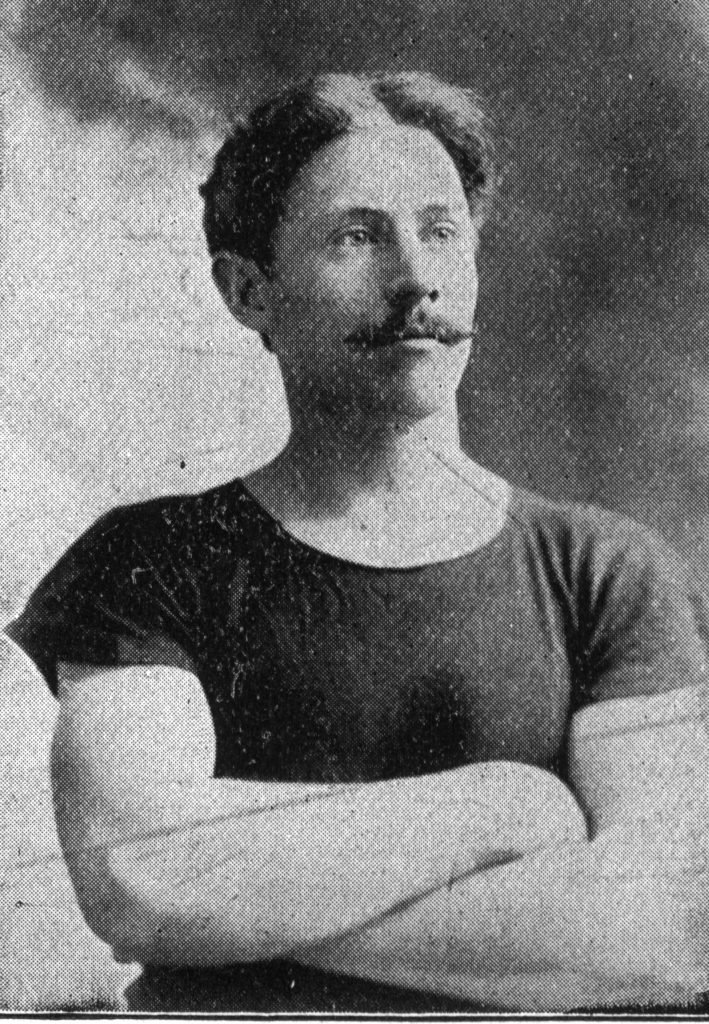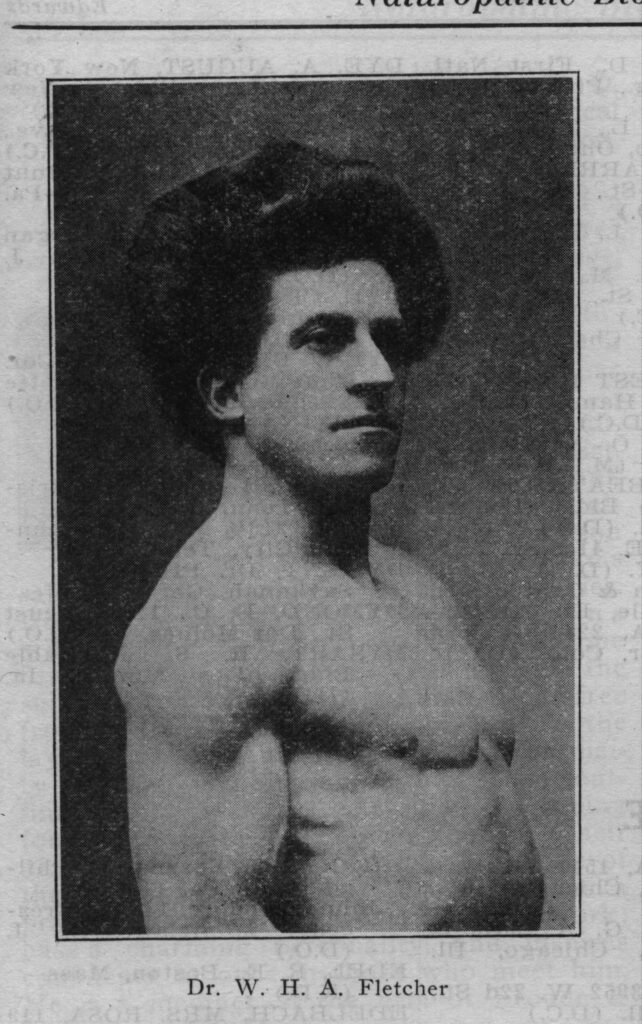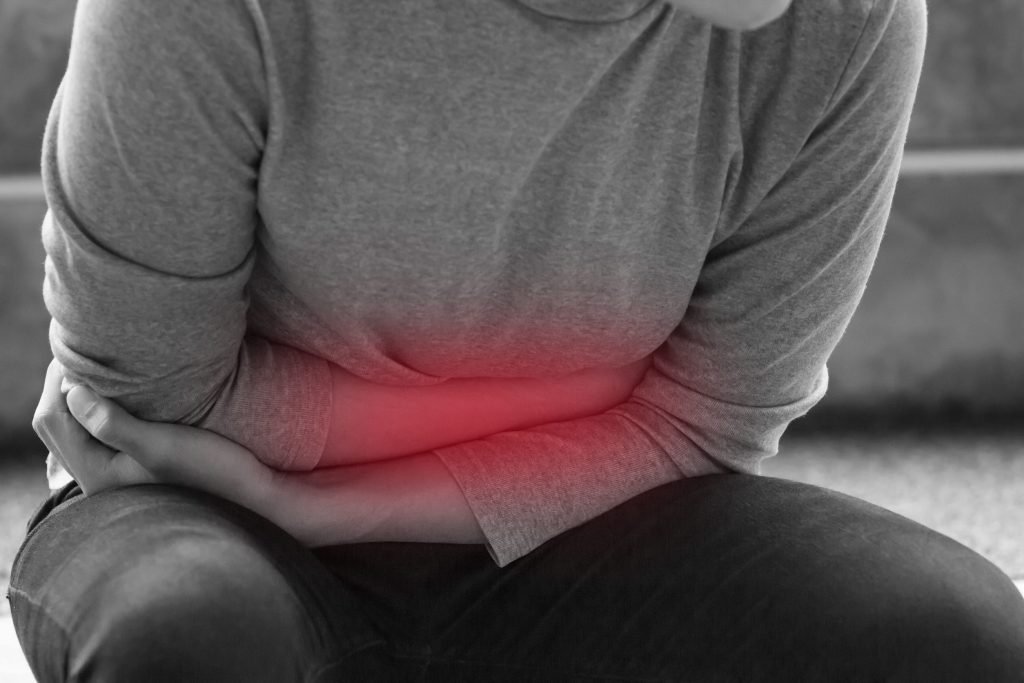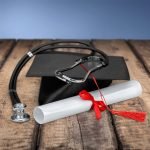Sussanna Czeranko, ND, BBE
There are probably more persons in the world today suffering from indigestion than from any other known ailment. And so long as people eat too much, too fast, and improperly, they will have stomach troubles. ~ William James Cromie, 1902, p.506
Should you suffer from indigestion, fast awhile and take physical exercise. Eat only when hungry. ~ Benedict Lust, 1908, p.149
Never eat to satiety. Eat only when hungry, never because it is meal time, or because invited to eat. ~ John Harvey Kellogg, 1908, p.320
Digestive disorders are on the rise. Functional dyspepsia is widespread – 20% prevalence worldwide – and despite extensive research, “the underlying causes of dyspepsia in a majority of patients remain [elusive and] unknown.” (Addula et al, 2018, p.831) Full-blown indigestion in the form of GERD (gastroesophageal reflux disease) is increasing globally. According to the World Health Organization, more than $10 billion was spent on antacids alone in 2017. (Marketwatch, 2018) More money is apparently spent on antacids than on politics in the United States. The significant economic burden due to healthcare costs and constraints on daily activities of patients remains a challenge for those afflicted with indigestion.
While proton-pump inhibitors (PPIs) are the first line of drugs used, the over-reliance on these drugs and their increased unsubstantiated long-term use have become a concern. Importantly, aside from side effects, taking medications has not resolved the inherent problem of indigestion.
A century ago, Edwin Ross noted, “Great industries the world over are kept busy producing ‘cures’ and the newspapers, magazines and other avenues of publicity are cluttered with their advertisements.” (Ross, 1922, p.65) Indigestion is as old as history, and yet despite the well-oiled scientific machinery of the American medical industry, rather than seeing any improvements in dyspepsia, the numbers are escalating.
The early Naturopaths of that era were quick to recognize symptoms of dyspepsia, and treated their patient without drugs. Then, as now, allopathic medicine was often successful at eliminating the symptoms of indigestion while completely overlooking why these very symptoms arose in the first place. The early Naturopaths, on the other hand, studied closely the causes of indigestion; as a result, their treatment plans were multifaceted.
9 Rules to Prevent Indigestion
William James Cromie (Figure 1) was one such Naturopath very interested in indigestion. He was one of Benedict Lust’s students, and he specialized in Physical Culture. Cromie published often in Lust’s magazine, The Naturopath and Herald of Health. In a 1902 article (Cromie, 1902, p.506), he compiled a list of 9 causes of indigestion that included:
- eating too fast
- drinking too much fluid
- mental effort
- fatigue
- eating too much
- sedentary habits
- tight clothing
- alcohol
- irregular eating habits
Figure 1. William James Cromie

Eating quickly resulted not only in food being poorly masticated, but also in preventing enzyme production by the salivary glands; this, in turn, resulted in unwanted fermentation in the digestive tract.
Fletcherizing, by Horace Fletcher
The man whose namesake became associated with chewing was Horace Fletcher (Figure 2). He wrote the book, The A B Z of Our Own Nutrition (1903), which revolutionized the act of eating. Fletcher declared that “Americans eat too much and unwisely. The result … is a loss of energy and an invitation to disease.” (Lust, 1905, p.53) Fletcher observed that when “food [is] properly chewed, there is marked absence of fermentations and putrefactions which are so often present in the alimentary canal, not only in the stomach, giving rise to flatulence, but also in the small intestine, particularly in the colon, resulting in the formation of poisonous substances which thin the blood and permeate the tissues, interfering with all the vital functions, giving rise to a variety of chronic diseases.” (Lust, 1905, p.56) The multitude of chronic diseases listed by Fletcher continue to plague society.
Figure 2. Horace Fletcher (1849-1919)

Fletcher differentiated between cravings and hunger. He emphasized that one “be sure he or she is really hungry and not pampering a false appetite.” (Lust, 1905 p.54) Fletcherism entailed chewing one’s food until it is virtually liquefied, and then swallowing. This practice became common and was adopted by Naturopaths, persisting long after Fletcher’s book retreated into the shadows. John Kellogg also instructed patients to chew their food well. He wrote, “Chew every morsel until reduced to liquid in the mouth … thorough chewing develops appetite juices [hydrochloric acid] in the stomach.” (Kellogg, 1908, p.321)
- Devereux summarizes the importance of mastication and saliva: “To those suffering from acidity and flatulence, denoting forms of indigestion or dyspepsia, it should be carefully noted that the natural antacid is the alkaline saliva.” (Devereux, 1926, p.327) Thorough mastication creates the conditions for the correct balance of gastric juices, thus preventing indigestion.
After eating a meal, Cromie recommended giving the brain a rest so that blood is available for the stomach to digest. “There is not enough blood in the body to supply muscles, mind and stomach, or any of the two organs at the same time.” (Cromie, 1902, p.507) Orison Marden adds,
Many intelligent people do not know that the reason for being so sleepy and dull after a hearty meal is because Nature has sent just as much blood as possible to the digestive organs, and the brain is left without stimulation. Nature makes it difficult for us to work right after a meal by withdrawing from the brain the blood, which supplies the thinking forces. (Marden, 1915, p.177)
Naturopaths would counsel patients to sit down to eat, focus on chewing their food thoroughly, and on being patient and aware of the digestive process.
Drinking too fast and consuming too much fluid during meals reduces the amount of saliva to mix with foods and drink, and also leads to fermentation. J. Neff described drinking during meals as “one of worst acts of gluttony.” (Neff, 1911, p.181) He writes, “When you drink at meals, you wash the food down long before it is chewed finely enough, or before it has received half of the saliva needed to prepare the food for the gastric operation [of digestion].” (Neff, 1911, p.181) The presence of saliva in the mouth determines the secretion of gastric juices to be produced in the stomach. Harris Luntz writes, “Digestion, as we all know, begins in the mouth, that of mixing the food with saliva.” (Luntz, 1921, p.94) Mastication increases the flow of saliva and enzymes, which “stimulates the flow of the acidic stomach juices.” (Luntz, 1921, p.94) Cromie continues: “Too much liquid taken at meal time tends to dilute the gastric juice and thus weakens its power in the process of digestion.” (Cromie, 1902, p.507) On the other hand, J. Neff counseled against any drinking of liquids during meals. He wrote, “Never, never drink a drop of any liquid at meals. … It only prevents digestion and causes ill health.” (Neff, 1911, p.381)
“Nervous dyspepsia” was common and seen as a diagnostic category of its own. People who were seen as nervous or suffering from “neurasthenia,” or what we today call stress, would be prone to dyspepsia. “Mental exertion, haste of our busy life, mental disturbances of all kinds, such as anger, sorrow, the constant fear of the future and all sorts of excesses may bring about nervous diseases,” leading to dyspepsia. (Lust, 1900, p.38)
When stressed or exhausted, eating should be postponed until a feeling of repose returns. When agitated, digestive processes are impaired, the early Naturopaths contended, and gastric secretions thus decrease. Emotions such as “worry, fear, anger, discontent, jealousy, malice,” (Cromie, 1902, p.507) also contributed to dyspepsia. These same naturopathic pioneers also felt that digestion began in the brain. We only need to say “lemon juice” to feel the salivary glands activated, they would declare. Eating when emotionally charged or stressed is a sure recipe for indigestion.
Evils of Overeating
Excessive consumption of food not only leads to weight problems; it is also reasonable to conclude that there is a limit to the amount of digestive fluids our bodies can produce so that food can be digested. The digestive fluids must permeate the contents of the stomach to complete the digestive process; otherwise, the “parts of the mass which are not digested will soon decompose, producing acidity and a pressure of gas.” (Cromie, 1902, p.507) Lust suggested taking a break from eating: “People who are in the habit of gorging themselves every day should better fast one day in each week and thus give their overworked digestive organs a little rest so that many diseases, beginning with stomach troubles, can be prevented.” (Lust, 1901, p.27) Eating too often also contributed to indigestion. In this regard, Lust remarked, “Many diseases are caused by eating a second meal before the first has been fully digested.” (Lust, 1905, p.271)
Cromie made his living teaching people to exercise. He counseled that when people adopt a sedentary lifestyle, peristalsis also follows suit. “General exercise is effective in the cure of indigestion as it increases the circulation of the blood and this in turn stimulates the stomach, and … all [organs]. (Cromie, 1902, p.509) Luntz adds, “Most of us suffer from lack of exercise. We sit in chairs and work with our heads. Nature made our body for muscular work.” (Luntz, 1921, p.95) Accordingly, Luntz included poor posture as a factor in poor digestion. He summarizes many of the previous causes of indigestion identified by Cromie:
Habit comes in as another important point in digestion. By habit, I mean, how we dress, how we walk, how we breathe, the amount of exercise we take, and generally our amount of willpower and poise. (Luntz, 1921, p.94)
Alcohol was on Cromie’s list of digestive culprits because alcohol caused inflammation and ulceration … and changed the gastric fluids. Alcohol was often lumped together with spices and condiments such as pepper, catsup, and mustard. (Cromie, 1902, p.508; Kellogg, 1908, p.320) John Harvey Kellogg, the famous Hydrotherapist of Battle Creek, counseled against condiments as well, including sugar, which he considered very irritating for the digestive tract, causing indigestion. (Kellogg, 1908, p.320)
Medications
The effects of medications upon the digestive tract were also recognized by the early Naturopaths. Benedict Lust writes, “In our increasingly degenerated conditions, the sins of the fathers are visited on the children more often than ever.” (Lust, 1901, p.298) Vincent Priessnitz, in his lifetime, had successfully treated a multitude of patients who were ravaged by the golden standard of care used by doctors of his day. The medical doctor would have relied upon calomel, considered as the very best that medicine offered to sick people. Patients, invariably heavily dosed with mercury or calomel, sought out Priessnitz and others using hydrotherapy. Cold water cured these patients, not only of their mercury toxicity but also of their original diseases.
Lust writes, “Father Kneipp … could distinctly trace in children that their father had been treated for a length of time with mercury, and had still in his system the poisoned blood which had naturally been transmitted to the poor innocent offspring.” (Lust, 1901, p.298) These early hydrotherapists recognized that offspring from parents treated with mercury inherited poor digestive organs.
Symptoms
Patients suffering from nervous dyspepsia had a variety of symptoms that included “bad taste in the mouth, gaping, belching of wind, and sometimes intense pain.” (Lust, 1900, p.38) The presence of gas or bloating did not come immediately after a meal but “often appeared one-half or three-quarters of an hour later; … with others, they occur upon an empty stomach.” (Lust, 1900, p.38)
Dietary Counsel
Lust commented that “the treatment of nervous dyspepsia should never be a mere dietetic one, but must be directed more at the improvement and strengthening of the whole organism and especially the nervous system of the patient.” (Lust, 1900, p.38) He emphasized individualized dietary recommendations tailored to the conditions of each patient. (Lust, 1907, p.290) Those with nervous dyspepsia “should live on a light vegetarian diet, the use of butter and eggs is also permitted.” (Lust, 1907, p.289)
Lust considered rice an easily digestible food, requiring only 1 hour to digest, unlike other foods that required hours. Shorter digestion times allowed the stomach to have a rest. (Lust, 1905, p.271)
The early Naturopaths knew about food combinations too. Morgan writes, “Some fruits have acids that hinder the digestion of starch.” (Morgan, 1901, p.305) Another early Naturopath, Eugene Christian, was an important author of books and home courses on diet. He comments, “About 90% of all human disease originates in the stomach caused by errors in eating.” (Christian, 1912, p.6) He believed that people should “know how to select [and combine] food that would remove causes of indigestion and constipation.” (Christian, 1912, p.7)
Many of the Naturopaths spoke about the merits of a vegetarian diet for indigestion. Louisa Lust herself published a cookbook that became a valuable source book for those initiating into vegetarianism. She writes, “Such vegetarians should remember that the secret of physical health lies just as much in discarding sugared beverages and starchy, devitalized foods as in leaving out the meat.” (Lust, 1921, p.323) Continuing, she adds,
Green and root vegetables are antiseptic. They neutralize poisons and toxins as well as stop gaseous fermentation and eradicate poisons from the walls of the bowels. Any treatment for indigestion must be directed toward cleansing the stomach and bowels of their poisonous accumulations. (Lust, 1921, p.323)
In her view, adopting a healthy vegetarian diet was the ticket to heal indigestion.
Fiber
Naturopaths also emphasized the inclusion of fiber or cellulose in the diet to counter indigestion and its sequela, constipation, that often accompanied indigestion. Fiber was recognized as one of the constituents of foods that stimulated “proper peristaltic activity.” (Ross, 1922, p.65) Foods that contained fiber included “apples, oranges, lettuce, celery, spinach, etc., [and] are in reality far superior to concentrated foods such as grains, cereals, beans, peas, lentils, eggs, cheese, meats or nuts.” (Ross, 1922, p.65) Naturopaths taught their patients that fruits and vegetables contained more water than legumes and helped lubricate the digestive tract.
Water Applications
Cold-water applications had the primary purpose of strengthening the whole body. Special considerations for weak patients included beginning with a washing or affusion, using a small amount of vinegar mixed with water. One part vinegar to 2 parts water was the preferred ratio for vinegar used in bathing. (Lust, 1907, p.290) Patients who suffered from anemia, or chlorosis, especially needed to be warm before and after any cold-water treatment, and these patients were advised to rest in bed until their bodies warmed up. (Lust, 1900, p.39)
Wet wraps were also used as one of the hydrotherapies to begin with. Again, vinegar would be added to the water, which was used to wet the sheets. Lust provides clear instructions on how the wet packs were applied:
The wet linen, wrung out well, must cover the whole abdomen. This linen, which must reach around the whole body, must be covered with a woolen cloth to produce the heat necessary to create that beneficial effect which will cure. The packings will stop that painful pressure in the abdomen, remove the gas and help the stool. (Lust, 1900, p.39)
Once patients were accustomed to these preliminary cold-water treatments, other applications such as gushes, sitz baths, and half-baths were given. A combination of these would be applied 3 or 4 times a week. (Lust, 1900, p.39)
Closing Comments
The Naturopaths understood dyspepsia or indigestion and were successful in not only treating the symptoms but also in teaching their patients preventative measures. In the next issue, we will explore some of the roots of naturopathic thoughts on the theories of nutrition based upon Louis Kuhne (1835-1901).
References:
Addula, M., Wilson, V. E. D., Reddymasu, S., Agrawal, D. K. (2018). Immunopathological and molecular basis of functional dyspepsia and current therapeutic approaches. Expert Rev Clin Immunol, 14 (10), 831-840.
Christian, E. (1912). The food we eat and the food we should eat. The Naturopath and Herald of Health, XVII (1), 6-7.
Cromie, W. J. (1902). Indigestion cured by exercise. The Naturopath and Herald of Health, III (12), 506-510.
Devereux, J. R. (1926). Digestion and indigestion. Nature’s Path, II (7), 325-327.
Kellogg, J. H. (1908). The simple life in a nutshell. The Naturopath and Herald of Health, IX (10), 319-323.
Luntz, H. H. (1921). Indigestion. Herald of Health and Naturopath, XXVI (2), 94-95.
Lust, B. (1900). Nervous dyspepsia. The Kneipp Water Cure Monthly, I (3), 38-39.
Lust, B. (1901). Diet treatment. The Kneipp Water Cure Monthly, II (1), 27-28.
Lust, B. (1901). Diseases. The Kneipp Water Cure Monthly, II (11), 298.
Lust, B. (1905). New theory on eating. The Naturopath and Herald of Health, VI (2), 53-56.
Lust, B. (1905). A sure cure for indigestion. The Naturopath and Herald of Health, VI (10), 271.
Lust, B. (1907). Nervous dyspepsia and its treatment according to Kneipp’s methods. The Naturopath and Herald of Health, VIII (10), 289-290.
Lust, B. (1908). Vegetarian method of life. The Naturopath and Herald of Health, IX (5), 148-149.
Lust, L. (1921). Some thoughts on the value of vegetarianism and raw foods in health and disease. Herald of Health and Naturopath, XXVI (7), 323-324.
Marden, O. S. (1915). Diet and digestion. The Naturopath and Herald of Health, XX (3), 177.
Marketwatch. Press Release: Global antacid market growth is expected to be driven by increasing incidence of gastroesophageal reflux disease globally. March 14, 2018. Available at: https://tinyurl.com/yaj69gvw. Accessed December 3, 2018.
Morgan, J. (1901). Scientific cooking and eating. The Kneipp Water Cure Monthly, II (11), 304-305.
Neff, J. H. (1911). Drink at meals. The Naturopath and Herald of Health, XVI (6), 381.
Ross, E. J. (1922). The life worthwhile. The Herald of Health and Naturopath, XXVII (2), 65-67.
 Sussanna Czeranko ND, BBE, a naturopathic physician licensed in Oregon, has been practicing since 1994. She incorporates nature-cure approaches such as balneotherapy, hydrotherapy, and breathing therapy into her practice. Dr Czeranko is a faculty member and works as the Rare Books Curator at NUNM. She has completed the 11th book in a 12-volume series, The Hevert Collection, based upon Benedict Lust’s original journals. She is also the founder of the Breathing Academy, which trains NDs in the breathing therapy, Buteyko. She is a founding board member of the International Congress of Naturopathic Medicine. Dr Czeranko has established a traditional naturopathic clinic, Manitou Waters, in Manitou Beach, Saskatchewan, which is scheduled to open in August 2019.
Sussanna Czeranko ND, BBE, a naturopathic physician licensed in Oregon, has been practicing since 1994. She incorporates nature-cure approaches such as balneotherapy, hydrotherapy, and breathing therapy into her practice. Dr Czeranko is a faculty member and works as the Rare Books Curator at NUNM. She has completed the 11th book in a 12-volume series, The Hevert Collection, based upon Benedict Lust’s original journals. She is also the founder of the Breathing Academy, which trains NDs in the breathing therapy, Buteyko. She is a founding board member of the International Congress of Naturopathic Medicine. Dr Czeranko has established a traditional naturopathic clinic, Manitou Waters, in Manitou Beach, Saskatchewan, which is scheduled to open in August 2019.





